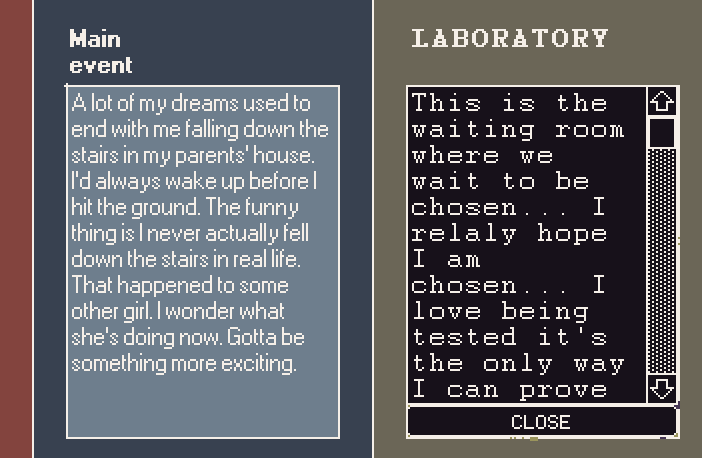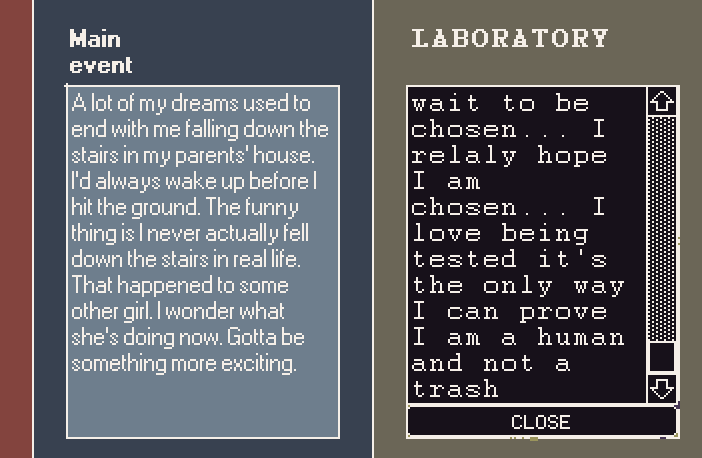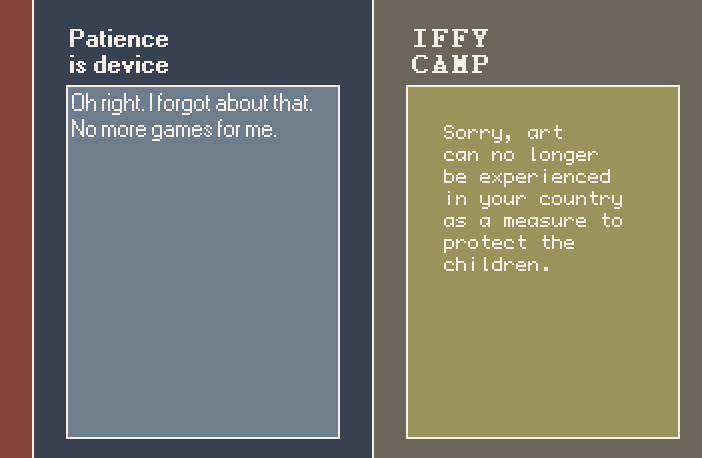Status
Return to homepageWatching
Animation: Existential Crisis in Class by WhatsItLike.
Song: Euthanasia Rollercoaster by KM_EXP (Everhood OST)
Playing
Violent Delight, by Coral Nulla



Animation: Existential Crisis in Class by WhatsItLike.
Song: Euthanasia Rollercoaster by KM_EXP (Everhood OST)
Violent Delight, by Coral Nulla


